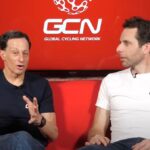So what do Tom Brady, LeBron James, Serena Williams, Tiger Woods, Usain Bolt, Annika Sorenstam, Michael Phelps, Lance Armstrong, and Lisa Leslie have that you don?t?
This question has been on the minds of many people of late with the recent publication of Malclom Gladwell?s Outliers and Daniel Coyle?s The Talent Code. If you have read these books, you might conclude that greatness has little to do with innate abilities ? intelligence or inborn physical capabilities ? and everything to do with motivation and circumstance. However, both authors are missing the obvious, particularly as it relates to sports: all of the mental strength and opportunity in the world won?t help if you?re not physically capable of performing at the highest level of sport. A teenage boy may have the best hook shot on Earth, but if he has only 5? 10? genes, he will not be posting up in the NBA. As the former Utah Jazz coach Frank Layden noted, ?You can?t teach height.?
But, of course, innate physical ability isn?t enough either. History is littered with ?can?t miss? kids who, well, missed ? ?Did someone say Ryan Leaf?? Yes, you can get pretty far without it, but to be truly great, you must have it all: physiological gifts, opportunity, and, finally, the psychological capabilities to take full advantage of them. If you look at these three contributors to performance, you really only have control over the last one: your mind.
In my work with athletes, I?ve been able to identify the five most important psychological qualities that distinguish the Wayne Gretzkys and the Candace Parkers from the rest of us.
Drive
The problem with superstar athletes is that you see the final result ? greatness ? but not all of the hours they put in on the court, field, track, or road. Whether you call it motivation, determination, or commitment, the great ones have it in spades. They just work as hard as they possibly can. And that drive is usually propelled by intense passion for their sport; they just love playing the game. Maria Sharapova, for all her seemingly natural talent, was the first on the court and the last off when she was a kid.
Confidence
I?m not talking arrogance, cockiness, or ?tude (Do you hear me, TO?). I?m talking about a deep and resilient belief in the great ones? ability to achieve their goals. They just know they will succeed even though they don?t always. Back in the ?80s, there was a poster of Michael Jordan taking a last second shot. The caption read something like: ?I was given the ball 27 times with ten seconds left in the game and the winning shot in my hands?and I missed.? That didn?t stop him from wanting the ball and taking the shot. MJ believed he would make the next shot.
Calm
It?s obvious, the great ones know how to handle pressure; they stay cool, calm, and collected when others around them are freaking out. Imagine taking an exam or giving a work presentation in front of 80,000 people who are letting you know in no uncertain terms they want you to fail. Remember ?The Drive? by the 49ers against the Bengals in Super Bowl XXIII in 1989? The Niners, down 16-13, had 3:10 to move the ball 92 yards to win the game. Quarterback Joe Montana looked at his teammates in the huddle, smiled, and asked if anyone had noticed John Candy in the stands, ESPN reported. Everyone laughed, the pressure was taken down a notch, and Montana completed what was perhaps the most famous of his 31 fourth-quarter comebacks in an NFL game. Montana definitely earned his nickname, Joe Cool.
Focus
You can see it in eyes of great athletes, like laser beams locked onto whatever they need to concentrate on to get the job done. They are totally focused, blocking out distractions, whether competitors, expectations, fans, nerves, conditions, past mistakes, or future results. Can anyone focus better than Tiger? In big tournament after tournament, against the best golfers in the world, when everyone expects him to win, Tiger puts his head down, his eyes on the ball and the ball in the cup.
Emotions
Ah, emotions: the last and most misunderstood piece of the athletic greatness puzzle. Emotions impact the great ones in obvious and surprising ways. First, what emotions come to mind when you think of Peyton Manning? Probably none. Ahead or behind, the guy is as stoic as Socrates. It?s as if he?s had his emotions (and his personality; sorry Peyton) surgically removed. He is an emotional master.
Then, there?s John McEnroe. Now wait a minute, I know what you?re thinking: ?You can?t be serious!!? He seems like the antithesis of Peyton Manning ? and an emotional basket case. Yet, he too mastered his emotions on the tennis court, using them to fire himself up and unnerve his opponent. Remember all of those times when he seemed to emotionally lose it over a bad call or raged against an umpire or himself. Did you ever notice what happened after he settled down? He usually won.






